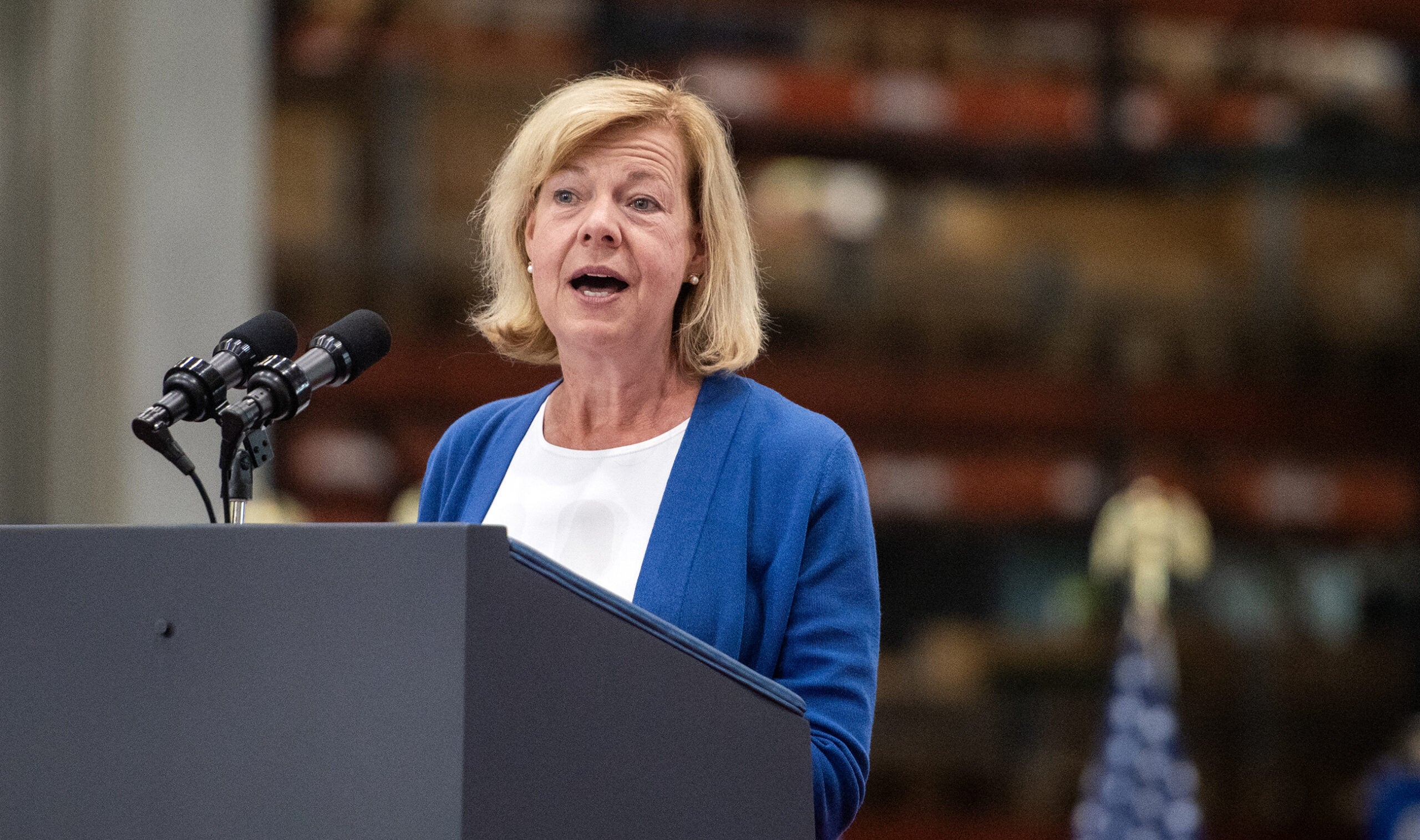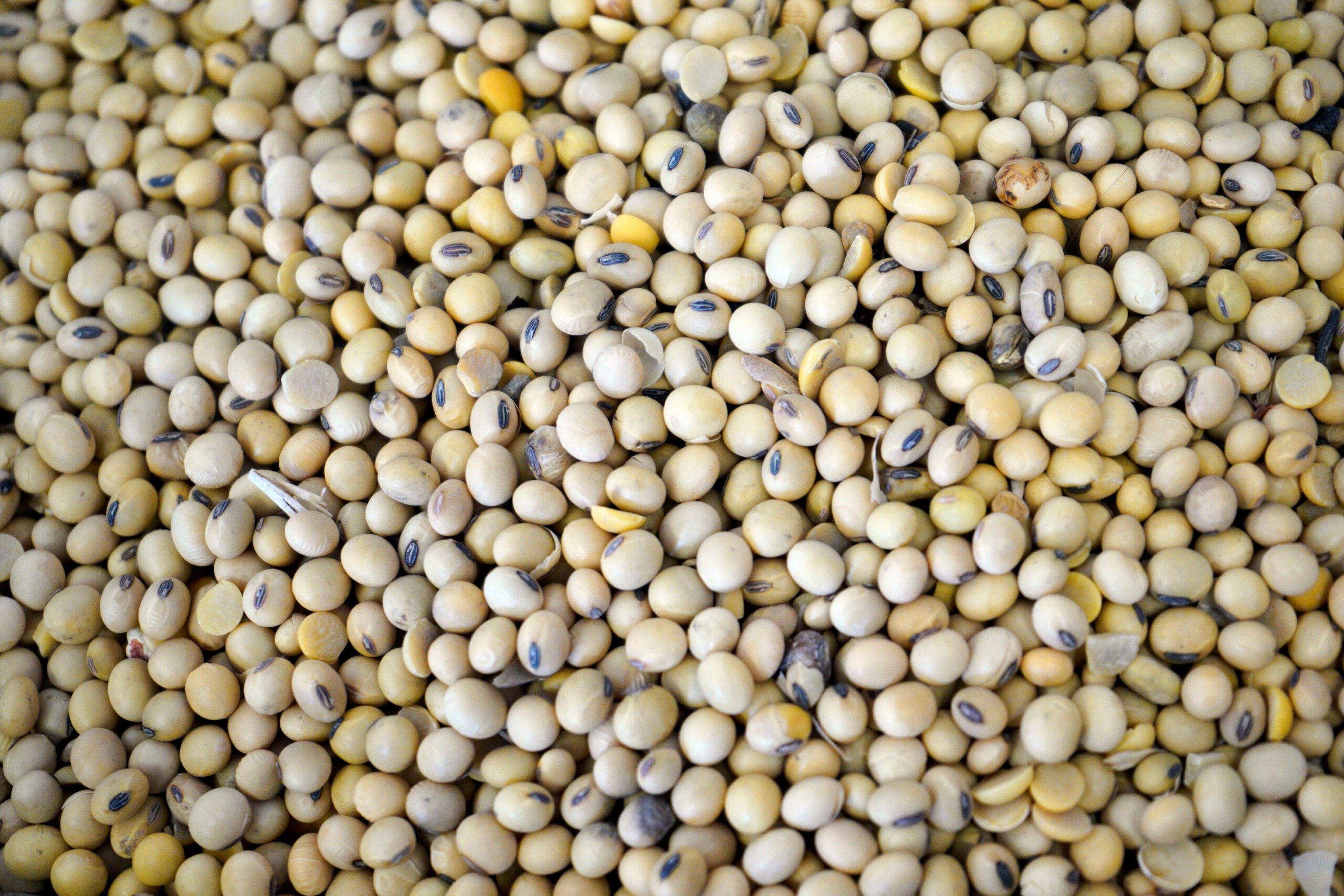Wisconsin farm leaders have mixed feelings about the possible return of retaliatory tariffs on U.S. farm goods.
A recent report released by the National Corn Growers Association and American Soybean Association looked at the potential impacts of rekindling a trade war between the U.S. and China.
The issue has returned to the forefront since former President Donald Trump has said he would place a new 60 percent tariff on Chinese goods if elected in November. Vice President Kamala Harris has criticized Trump for the proposal, but her campaign has indicated she is not opposed to tariffs. The Biden administration has retained some of the taxes Trump put in place on Chinese products.
Stay informed on the latest news
Sign up for WPR’s email newsletter.
In 2018, Trump’s administration placed tariffs on imported steel and aluminum from several countries and a number of other products from China. In response, China and other nations placed their own tariffs on American agricultural products. It led to $27 billion in lost exports in 2018 and 2019, with China making up about 95 percent of the loss.
The administration reached an agreement with China in January 2020 to end the trade war. But the new report points out the Chinese tariffs are technically still in place and have been waived over the last four years.
The study found that if China cancels the waiver in response to new U.S. tariffs, American soybean exports to the country would fall by nearly 52 percent from expected totals, a decrease of up to 16 million metric tons annually. Corn exports to China would fall by 84 percent, or 2.2 million metric tons annually.
The analysis found that the loss of exports would likely lead to a decline in U.S. crop prices. It also reported that farmers in Brazil and Argentina would likely expand to fill the demand from China, potentially causing long-term market loss.
James Giese, president of the Wisconsin Corn Growers Association, said returning to the trade war of 2018 would not be a good thing for farmers. He said the previous retaliatory tariffs depressed crop prices and raised the cost of things like fertilizer.
“I know that we’re prepared for it more,” said Giese, who farms in Jackson County. “COVID definitely prepared us for the worst and taught a lot of people to have a little bit more forward thinking and a little more padding, if you’re able to. But the current prices aren’t the best.”
Giese said returning to exchanging tariffs may be a “necessary evil” in order to establish better trade terms with China overall.
It’s an argument shared by Jason Mugnaini, executive director of government relations for the Wisconsin Farm Bureau. He said the 2018 trade war led to an increased ability to negotiate with China, something he doesn’t feel the new report captures.
Mugnaini said U.S. agricultural trade is “decisively broken already,” pointing to recent trade deficits in farm goods.
“Gaining more market access, finding a place for our commodities where we feel like we’re being treated fairly, is what’s going to probably lead to a long term improvement in the market access for Wisconsin and American agricultural commodities,” he said.

But Darin Von Ruden, president of the Wisconsin Farmers Union, feels the recent trade deficits are the result of the trade war from 2018.
“We’ve lost those markets to other countries because of those trade wars, and we’re still really feeling the effect of that today,” he said. “We haven’t been able to rebuild those markets in our partnering countries.”
Von Ruden said regardless of what imports the U.S. targets, American farm goods seem to pay the price of other countries’ response. He said farmers should be thinking about this issue as the head to the polls this November, supporting candidates who are “protecting us somewhat, versus trying to take our markets away.”
Geise said tariffs is just one issue he’s thinking about ahead of the election, as well as other concerns like the impact of taxes.
Wisconsin Public Radio, © Copyright 2025, Board of Regents of the University of Wisconsin System and Wisconsin Educational Communications Board.







